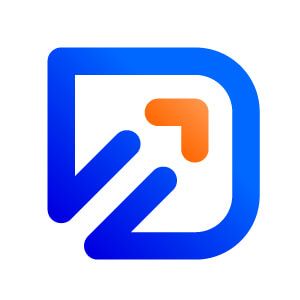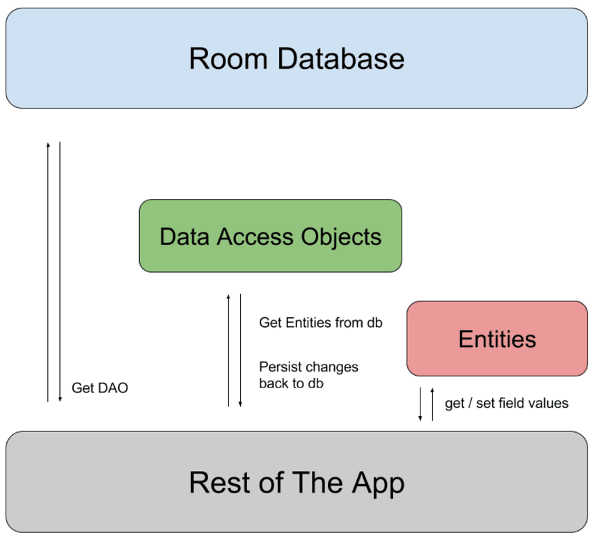
Design Converter
- Technologies
Flutter
React
Shopify
Android
iOS
Flutter
React
Shopify
Android
iOS
- Resource
University
Documentation
Templates
UI Accuracy
Discord
University
Documentation
Templates
UI Accuracy
Discord
- Pricing

Design Converter
Education

Last updated on Oct 24, 2023
Last updated on Jun 23, 2021
Can you make your android application work even with a poor internet connection?
If yes, is there any persistent library that enables smooth database access by harnessing the power of the SQLite database?
Continue reading this article to get the answer to your questions.
SQLite offers the most convenient and safest way to manage information to the database, particularly in the case of read-intensive deployment. It is a reliable, faster, serverless, zero-configuration, database engine written in C language that generally follows PostgreSQL syntax but does not enforce type checking.
SQLite is highly portable and supports many features of MySQL. It could get extensions in whatever programming language you need to access its database. Most importantly, SQLite is embedded in android by default, therefore there is no need to perform any database setup, configuration, and access control task.
However, there are some limitations for using SQLite directly in your app such as,
Here the Room database saves you from all these issues and facilitates smooth database access by persisting the data locally.
An app that handles a non-trivial amount of structured data can benefit greatly from persisting data locally and the Room database helps to get that with ease. That means with the Room database your application will work even in the case of internet unavailability.
Let's explore more about the Room database, its architecture and implement the Room database in detail.
Room is the SQLite object mapping library which allows more robust database access while harnessing the power of SQLite. In particular, Room provides the following benefits:
Any error in the SQLite database query can throw a runtime exception. Using the Room database can explicitly handle this issue as it checks the query at compile time itself. It helps to prevent the application from runtime exceptions.
Room simplifies data manipulation in SQLite by providing an abstraction layer above it. Thus it reduces the efforts of writing unnecessary code for each database query. So we don’t need to write too much code.
If an application is using a non-Room implementation of SQLite, then it can be easily migrated to ROOM.
The Room database consists of three main components,

Room Db Architecture
To access a database in the Room we need to create a class and annotate it with the database. It also contains DAO(Database Access Object).
To interact with the Room database we need to create data access objects. It is annotated with @Dao. We can primarily use four annotations inside the DAO.
Entities represent a table in the database. Room Db creates a table for each class that has entity annotation. Each field in the class corresponds to columns in the table. Therefore, the entity classes work as small model classes that don’t contain any logic.
Well, here is the basic implementation of the Room database.
To implement the Room database create a project in android studio and choose a basic activity template.
To use Room in your application add the following dependencies to your app's build.gradle file:
1 dependencies { 2 def room_version = "2.4.1" 3 4 implementation("androidx.room:room-runtime:$room_version") 5 annotationProcessor "androidx.room:room-compiler:$room_version" 6 7 // To use Kotlin annotation processing tool (kapt) 8 kapt("androidx.room:room-compiler:$room_version") 9 10 // To use Kotlin Symbolic Processing (KSP) 11 ksp("androidx.room:room-compiler:$room_version") 12 13 // optional - Kotlin Extensions and Coroutines support for Room 14 implementation("androidx.room:room-ktx:$room_version") 15 16 // optional - RxJava2 support for Room 17 implementation "androidx.room:room-rxjava2:$room_version" 18 19 // optional - RxJava3 support for Room 20 implementation "androidx.room:room-rxjava3:$room_version" 21 22 // optional - Guava support for Room, including Optional and ListenableFuture 23 implementation "androidx.room:room-guava:$room_version" 24 25 // optional - Test helpers 26 testImplementation("androidx.room:room-testing:$room_version") 27 28 // optional - Paging 3 Integration 29 implementation "androidx.room:room-paging:2.4.1" 30 31 } 32 33
Before creating a database let’s create an entity. While creating an entity it is necessary to declare the primary key for your table.
In the code below, each room entity is represented as a class and it is annotated using @Entity. Also, @PrimaryKey defines the primary key of the table. Further, you can rename the members without changing the database column name using @ColumnInfo annotation.
1 @Entity 2 data class User( 3 @PrimaryKey val uid: Int, 4 @ColumnInfo(name = "first_name") val firstName: String?, 5 @ColumnInfo(name = "last_name") val lastName: String? 6 ) 7 8
Data access objects offer abstract access to your app database. You can define one or more methods to interact with the database of your application with DAO. The code defines how to query, insert, update and delete user objects in the Room database.
The code here shows four annotations: Query, Insert, Update and Delete.
1 @Dao 2 interface UserDao { 3 @Query("SELECT * FROM user") 4 fun getAll(): List
The following class defines the App Database that holds the database. It acts as the application’s main access point to hold persistent data.
1 @Database(entities = arrayOf(User::class), version = 1) 2 abstract class AppDatabase : RoomDatabase() { 3 abstract fun userDao(): UserDao 4 } 5
The database class must satisfy the following conditions:
Once you have defined the database, entities, and DAO you can create the instance of the database as,
1 val db = Room.databaseBuilder( 2 applicationContext, 3 AppDatabase::class.java, "database-name" 4 ).build() 5 6
Then you can use userDao() abstract method to get an instance of DAO.
1 val userDao = db.userDao() 2 val users: List
DhiWise provides built-in support for the Room database so that the code generated with the local database will be in the Room DB. It allows developers to create a data cache to keep the application’s data and take advantage of local persistent data and metaprogramming.
Overall, it helps you to improve application performance and development efficiency by reducing boilerplate code and run-time errors.
“Finding ways to accelerate your application development process. Start using DhiWise- A new-age application development platform for mobile and web application development, now supporting Kotlin for Android app development”.
To know more about DhiWise and its Android app builder visit our website today!!
Reference:
https://www.youtube.com/watch?v=lwAvI3WDXBY
https://developer.android.com/training/data-storage/room
https://www.youtube.com/watch?v=yPL13Iwy6oM
Tired of manually designing screens, coding on weekends, and technical debt? Let DhiWise handle it for you!
You can build an e-commerce store, healthcare app, portfolio, blogging website, social media or admin panel right away. Use our library of 40+ pre-built free templates to create your first application using DhiWise.